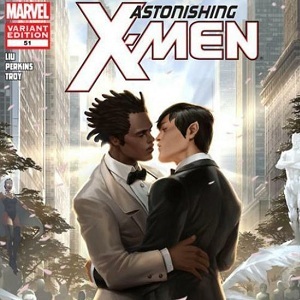One of the primer changes in comic books today is that they address social issues. Social issues in comic books became prevalent in the last thirty-five years. The revamping occurred when society decided to address social concerns. Some of the comic books of today tackle homelessness, drug use, minorities, gayness and the homophobic consequences.
It is important to note that such a slant toward portions of society in comic books make people conscious of alternate ways of living. The concept of homelessness has always been in the forefront of humanity but never depicted in comic books. The idea of comic books portraying people living in the streets or in some other seemingly derogatory means should not escape notice. Civilization is growing up, albeit more slowly than what is needed. Comic books reflect what emerges through an underground current and washes into mainstream. Those changes happened slowly, but with the advent of controversial issues being tackled, the changes are happening at an accelerated pace. Today comic books mirror what society is thinking. If an issue comes germane to warrant people's attention, then the comic book industry will usually incorporate it into their story lines.
It is important to note that such a slant toward portions of society in comic books make people conscious of alternate ways of living. The concept of homelessness has always been in the forefront of humanity but never depicted in comic books. The idea of comic books portraying people living in the streets or in some other seemingly derogatory means should not escape notice. Civilization is growing up, albeit more slowly than what is needed. Comic books reflect what emerges through an underground current and washes into mainstream. Those changes happened slowly, but with the advent of controversial issues being tackled, the changes are happening at an accelerated pace. Today comic books mirror what society is thinking. If an issue comes germane to warrant people's attention, then the comic book industry will usually incorporate it into their story lines.
An additional important element to consider in comic books is the rampant drug use. If a person is a drug user, the comic book industry takes notice. The prevailing notion is if it affects society, then it should affect how the comic books echo modern day life. Drug use is widespread and needs to be dealt with. What better way than to integrate it into a comic book. Let the superhero, the villain, or an ordinary citizen have a drug problem and see how the issue is handled. Not all resolutions are handled correctly and that is the realism that makes social issues in comic books important. Not even the good guys come out ahead all the time.
The homelessness and the drug usage are modern day blights. The topic of minorities is dealt with realistic implications. By the same token illegal aliens are minorities and they take great pains to make our culture sensitive to both their plights. In a sense comic books are our watch dogs of our way of life.
Moreover, the concept of homosexuality in comic books has had their share of controversy since the public's perception is skewed by the theological mindset. The topic is mentioned, but the comic book industry has trended lightly since a backlash could crop up. Despite the long held view that controversial views should not be addressed in a public format, and best left at home, a new prevailing thought has emerged. The comic books of today take torrid subject matters, encase them in a comic book format, then let the paying public decide if their gamble paid off. The result is a new significant way of looking at public perceptions and gain insight to a varying way of looking at those issues.
The comic book industry realizes the customer is the real hero. They can decide whether a character lives or dies. By giving the characters depth and exposing them to real life dangers, the comic book industry can be assured on continual readership.




















0 comments:
Post a Comment